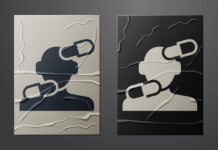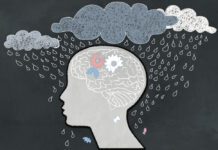Peer Support Research: Is It Time Yet?
Researchers could be doing a better job of defining peer support. We could also have a better understanding of what the “positive effects'' of peer support really are.
New Tools to Support New Moms: An Interview with Jennifer Barkin, PhD
A maternal mental health expert shares how perinatal stress and the climate crisis are affecting women’s everyday lives.
The Emperor’s New Clothes: The Upcoming NICE Depression Guidelines
The new NICE depression guideline is a reflection of the field: you don’t really know what you’re doing, and you lack confidence that it’s doing any good.
Is Mad in America Doing More Harm Than Good?
A dialogue between Dr. Jim Phelps—a psychiatrist who questions whether MIA is doing more harm than good by reporting the results of long-term trials of psychiatric drugs—and Robert Whitaker, founder of MIA.
My Substance Intoxication Was Misdiagnosed as Psychiatric
I thought it’d be a good idea to just triple the daily dose of St. John’s wort — surely a plant-based, prescription-free pill couldn’t be dangerous? I was wrong.
Psychiatry in Aeromedicine: Who Is Denied the Privilege of Piloting an Aircraft?
Urging aviation students at the summit to seek help if they need it is a noble cause, but it sounds hollow when the FAA regulations are built on stigma.
Bringing Integrative Community Therapy to Pittsburgh: An Interview with Alice and Kenneth Thompson
Father and daughter Ken and Alice Thompson run the Visible Hands Collaborative, bringing Integrative Community Therapy to the US.
From Horse Ranch to Home Ground: Healing Families via Telehealth
Since COVID, NISAPI has transitioned our collaborative therapy setting from barns and fields to kitchens and living rooms. Our clients report similar positive outcomes with telehealth as in person.
Unity in Diversity: Rethinking Mental Health and Our Connection to Nature
Meditation, walks in nature, and artistic and musical activities: These all have something in common—they have the power to dissolve the boundaries between us.
Inside a Forensic Psychiatry Unit: Cultivating the Superpower of Equanimity
In the detention center, there is really no better tool to overcome the constant threat of death than equanimity. Meditation was my antidote to hopelessness.
What Is the Role of the Prosumer in the Mental Health System?
I believe "prosumer" is the best term to describe consumers of mental health services who are also traditional professionals in mental health care.
ADHD: The Money Trail
Doctors, drug companies, and the news media have profited from skyrocketing rates of diagnosis and drugging for ADHD, and the law has created a perverse set of incentives for parents and children which favor the ADHD label.
Research Explores the Experience of Benzodiazepine Withdrawal
A new study reveals many benzodiazepine users are misinformed about the risks of withdrawal and experience devastating consequences.
Inner Fire Is the Only Place I Would Go for Emotional Distress
At Inner Fire, people share meals, take walks, clean, and garden, learning how to live again after being disconnected from others, nature, and our authentic selves.
How to Distinguish Antidepressant Withdrawal from Relapse
Mark Horowitz and David Taylor provide advice on how to tell the difference between antidepressant withdrawal and depression relapse.
Thomas Insel Makes A Case for Abolishing Psychiatry
In his new book, former NIMH director Thomas Insel, while exploring the causes of poor mental health outcomes in the United States, omits any mention of NIMH studies that tell of how the drugs worsen long-term outcomes.
The Abused Children to Bipolar Pipeline
The mental health system traumatized me further. They were allies with my abusers to cover up and continue my abuse.
Trans Lifeline: Naming Trans-Specific Harm in Mental Health
Interim Hotline Manager Jahmil Roberts and Advocacy Director Yana Calou from the Trans Lifeline work towards connecting trans people to the community support and resources they need to survive and thrive - free of prisons and police
Mad by Design: An Ancient Paradigm of Psychiatric Thought
To propose that madness may have a function is not to deny the toll it may exact on people, but to help us understand what problem it is meant to solve.
Did Psychiatry Ever Endorse the Chemical Imbalance Theory of Depression?
With the chemical imbalance theory falling out of fashion, researchers examine the claim that psychiatry never truly endorsed it.
Thomas Insel and the Future of the Mental Health System
Insel says he has the answer—the same emphasis on neuroscience and genetics, which he admits led to no improvements under his leadership at NIMH.
Antidepressants Do Not Improve Quality of Life
A new study found that taking antidepressants did not improve quality of life.
A Tribute to Dr. Dean K. Brooks: The Fire Still Burns
Stories of a state hospital leader who challenged the mental health system by placing patients as the most important people: Dr. Dean K. Brooks of Oregon State Hospital.
Eugenics, Lobotomy, Risperidone: “Science” Gone Awry
The worst thing about psychiatry is how it convinces your family to do things that they think are correct, which ultimately gets them to participate in harming you.
Ending Coercive “Help”: A Review of “Reimagining Crisis Support”
The book presents a thoughtful, comprehensive plan for replacing the current coercive medical model of crisis “support” with something that actually helps.

































